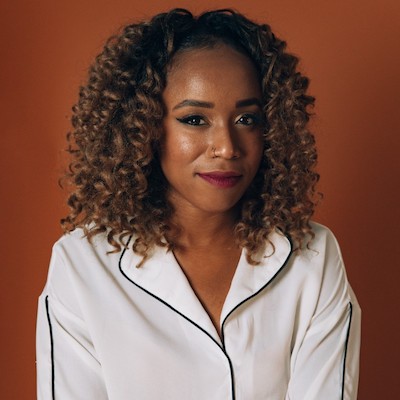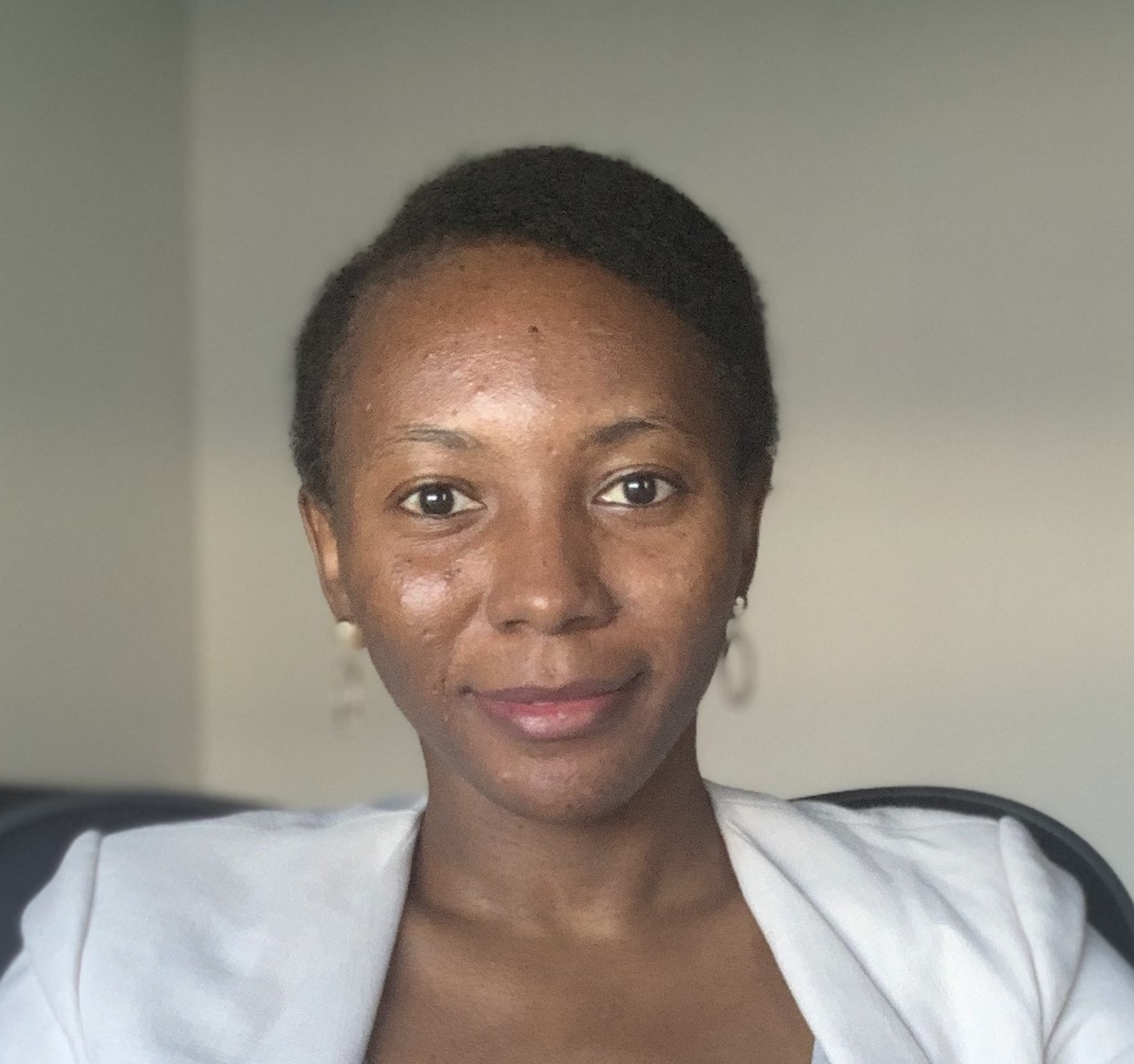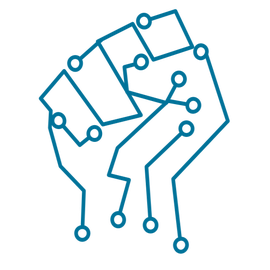BlackAIR Summer Research Grant Program
The Black in AI Research (BlackAIR) initiative aims to empower Black women to achieve their goals and positively impact their communities through AI innovation. BlackAIR Summer Research Grants aim to provide support for AI Research projects led by Black women.
Program Details
Black in AI is partnering with Stanford University to provide research support, mentorship, and exposure to program participants. Black women at various stages of AI research experience are encouraged to apply. Program participants will be matched with a research mentor whom they will regularly meet (remotely) for research guidance over the course of the grant. Participants will get the opportunity to hear speakers from various Computer Science research fields. The 2021 edition of the program will be held remotely.
Guidelines
Candidates are encouraged to submit an application including a research proposal describing candidates research interests or proposed projects, along with associated expenses up to $1500. Suggested use of funds include research equipments (Sensors, cameras, GPU, computers), software services, data annotations, surveys etc.
Application Requirements
- Fill out an application
- Research proposal (1page maximum)
- Proposed use of funds
Participation Requirements
- Regular meetings with research mentor (1+time/week)
- Monthly milestones/progress report (1page maximum)
- Attend Black in AI speakers series
- Attend weekly faculty talks
- Poster Presentation
Research Proposal
Many people asked us for more specific guidelines so we have a suggested proposal structure below along with example proposals. Note that this is not meant to constrain your creativity but help you create a concrete proposal. If you have an idea (e.g. AI + art) that does not fit into this specific proposal structure, please feel free to create one that works for you. If you have specific questions that are not answered in the FAQ you can contact blackair@blackinai.org.
Recommended Proposal Structure
Required sections are in bold. The overall proposal length is capped at 2 pages. The project title, introduction, proposed project, and milestones must fit on one page, and adhere to the word limit. The budget, references, and figures may spill over to a second page, but no more.
1.Project Title
2.Introduction and previous work(s) (200 words max)
- First, give an overview describing your project topic and research question
- Then, highlight previous works that will guide or inform your exploration of this topic
- Preferably, describe how previous work fails to address the research question you’re interested in.
- Provide a statement of any societal impact and ethical implications of your work.
3.Project Description (200 words max)
Here are some specific questions that can help you describe your proposed project- What approaches/methods will you use to answer your research question?
- What data will you work with? E.g. surveys, existing datasets, collecting a new dataset etc?
- If you’re going to build a system, describe it here.
- If you’re comparing to previous work, what specific baselines will you look at?
- How will you evaluate your approach?
4.Milestones (3+ milestones recommended, ~100 words)
Please provide specific milestones for your project with estimated completion time. We recommend having at least 1 milestone per month5.Budget (Does not count towards page limit)
Please provide a line item budget and justification. Describe how each item will be used for the execution of the project.6.References (Does not count towards page limit)
Please provide references to publications or sources that will inform your project proposal. We recommend including about 3-5 references from peer-reviewed publications.7.Figures (Optional - Does not count towards page limit)
Example Proposals
Three example proposals can be found here. If you’re looking for more inspiration on how to write your project proposal or come up with a research question, we recommend checking out resources for structuring NSF graduate research fellowship proposals such as this page from MIT media lab or this page from USC.
Proposal Review Guidelines
Below we have posted the reviewer guidelines to provide applicants as much transparency as possible about the review process. Before reviewers read any application for the program, they should know that:
- We have applicants from many different backgrounds since there is no degree, level, student/industry requirement for participation. We have applications ranging from high schoolers to postdocs, so reviewers will scale their expectations for proposals according to applicant’s academic history
- We might also have applicants who are non-native English speakers so reviewers will not judge applications based on grammar, sentence structure, and prose.
- We also asked applicants for a resume / CV, but there has been lots of research that shows resume bias exists, and so we ask that reviewers only read applicant’s resumes after they have read their proposal and ideally only use the resume to confirm details from the proposal and that applicant’s projects are feasible given their background.
- Furthermore, some of the research questions applicants are interested in exploring may be unfamiliar to reviewers or not seem like a “traditional” AI research topic, and that’s okay! Traditionally, AI research has been heavily white and male dominated, and this program is designed to empower Black women interested in research questions relevant to them and their communities, research questions that are oftentimes neglected or ignored by the rest of the AI community. If a reviewer is unfamiliar with a topic, we ask them to either do some background research or find someone who has expertise over the topic, but to not judge an applicant's proposal solely on whether it “looks like” a traditional AI research project or whether it is in a traditional AI space like computer vision or NLP.
- To reiterate, the kinds of projects BlackAIR is looking to fund are specific, feasible research ideas that applicants are interested and invested in. Therefore, reviewers should judge the merits of the proposal based on the scope of the project, the specifics of the proposal, the person's experience as related to the project, their perceived ability to complete the proposal, and the potential that the applicant’s participation will advance the visibility of Black women in AI.
- Finally, the essential question reviewers should ask themselves and answer in their review is: does the applicant have the necessary skills to execute this specific proposal with guidance from their mentor in the given timeframe?
Reviewer Criteria
In order to assist both the meta reviewers and the applicants, we request the following feedback from reviewers for each application. We would like proposals that are not accepted to have constructive feedback that helps the applicants improve their proposal for future submissions. We also ask for specific good points and points for improvement for meta reviewers to aid in participant selection process.
Reviewer feedback for applicants:
- Summarize the proposed project in 1-2 sentences
- Good points/merits of the proposal. What is good about this proposal? E.g. interesting idea, important problem, unexplored area, etc.
- What can be improved? E.g. unrealistic scope, not specific enough, not enough understanding of prior work etc.
- If you have concerns about the ethics or legality of the proposed project or processes associated with the work, please note them here with as much detail as possible. Examples include face surveillance technology for law enforcement, "fair" automatic gender recognition systems, drone surveillance, data collection practices and policies, whether data sources are legally obtained and IRB approved, etc.
Reviewer feedback for meta reviewers:
- Is the proposed project AI-related / adjacent? [yes/no]
- Is the proposed project concrete? [yes/no/partially]
- Is the proposed project feasible for a 12 week timeframe? [yes/no/maybe]
- Do you have concerns about the ethics or legality of the proposed project? [yes/maybe/no]
- Does the person have the necessary skills to execute this specific proposal with guidance from their mentor in the given timeframe? [yes/maybe/no]
- The reviewer‘s familiarity with the proposal topic: [very familiar/familiar enough to judge the proposal/somewhat familiar/not at all familiar]
- Overall reviewer recommendation on acceptance to the program: [accept/borderline/reject]
Timeline
Priority Application Deadline
Apr 30, 2021Interviews + Award Notification
May 07, 2021Applicant Response Deadline
May 14, 2021Program Start
June 01, 2021Milestone 1
July 01, 2021Milestone 2
Aug 01, 2021Poster Session
Aug 26, 2021Program Concludes
Aug 31, 2021Frequently Asked Questions
Questions
- Do I need to be a student to apply?
- Can I apply with my PhD project?
- Do I need to reside in the US to apply?
- Can I submit a proposal with multiple people?
- How long will the program run for?
- Do you have any example proposals to share?
- How much time commitment is expected from participants?
- What can I use the $1500 for?
- What specific requirements are there?
- Do I need any specific CS courses or background to apply?
- I'm interested in serving as a mentor for BlackAIR. What should I do?
- How many project proposals are applicants allowed to submit?
Answers
- No. There are no degree or enrollment requirements. You also do not have to be affiliated with Stanford to apply.
- Yes but you need to carve out part of your project that can be completed in the 3 months time-frame for the proposal (rather than your entire PhD project).
- A: No, there are no residency requirements and we encourage non-US residents to apply.
- Yes, you can have multiple members of a project but each project is capped at the $1,500.
- 3 months. The specific timeline can be found here
- See examples here.
- Participants are expected to spend about 10 hours a week on their project.
- We disburse the $1,500 on a monthly basis ($500/month) and expect it to be used for costs associated with your research (e.g. paying survey participants, paying for cloud usage, buying a specific hardware setup essential for your work, paying for internet access etc). You can use the funds as you see fit but we can only distribute in $500 increments each month.
- The full list of requirements can be found here. In order to ensure participants are making progress and benefiting from the program, you must submit your one-page milestone update and have attended at least 2 meetings with your mentor and at least half of the Black in AI seminar series before the next $500 installment is distributed each month.
- There is no degree or background requirements, although having some research experience in the past will be helpful.
- We are still looking for qualified mentors and are excited you want to participate! Please email blackair@blackinai.org to express your interest. We also ask that you provide your name as you would like it to appear, your area of AI expertise, your employer, and a current headshot.
- Applicants may only submit one project proposal at this time. If you have multiple ideas you're interested in, we recommend you pick the one that is most concrete, and feasible.
Organizers

Lyne Tchapmi
Founder, Director
Stanford University
Lauren Gillespie
Director
Stanford University
Faith Umoh
Intern
Boston University
Prof. Philip Levis
Stanford University
Prof. Moses Charikar
Stanford UniversityResearch Mentors

Abeba Birhane
Algorithmic injustice, critical race & decolonial studies, cognitive science & complex systemsUniversity College Dublin

Prof. Elaine Nsoesie
Applied Machine Learning, Public Health & Health EquityBoston University School of Public Health

Lyne Tchapmi
Deep Learning for 3D VisionStanford University

Prof. Natalie Schluter
Graph Algorithms, Automata, Machine Learning, NLPIT University of Copenhagen, Google Brain

Randi Williams
AI Literacy Education, Human-Robot InteractionMassachusetts Institute of Technology, Media Lab

Prof. Sarah Brown
Ethical AI and model-based MLUniversity of Rhode Island

Dr. Flora Tasse
Computer Vision, Graphics, AR/VRStreem

Prof. Rediet Abebe
artificial intelligence and algorithms, with a focus on equity and justice concernsUniversity of California, Berkeley

Prof. Thema Monroe-White
Critical Quantitative Studies, Data Literacy and Algorithmic AccountabilityBerry College

Candace Ross
Language grounding, grounding in vision, and weakly supervised models for language acquisitionMIT

Prof. Beth Coleman
smart technology & machine learning, urban data, and civic engagementUniversity of Toronto
